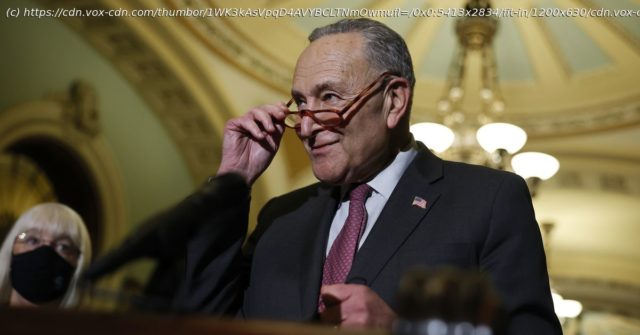Republican senators have been been holding up Biden’s diplomatic nominees.
The Senate confirmed a long-delayed slate of executive and judicial nominees on Friday and Saturday, filling positions that been left open for months because of Republican obstruction. The marathon Senate session, which ran into the early hours of Saturday morning before officially adjourning at just after 4 am Eastern time, included confirmation votes for 41 ambassadors and nine federal district court judges nominated by President Joe Biden, according to Punchbowl News founder Jake Sherman. Among those confirmed were US Ambassador to Japan Rahm Emanuel, US Ambassador to France Denise Campbell Bauer, and US Ambassador to the European Union Mark Gitenstein. The Senate also confirmed its 40th Biden-nominated judge, according to Washington Post reporter Seung Min Kim, more than any president in his first year in office since Ronald Reagan. The last-minute rush of confirmations on Friday — the last day of the Senate’s 2021 session — was an effort to work through a backlog of about 150 presidential nominees. Many diplomatic and national security posts remain open thanks to stonewalling from Senate Republicans and the slow pace of nominations from the Biden administration. Despite Friday’s progress, many of the nominees still in the backlog will have to be re-nominated by the president in the new session, further delaying the process. Republicans stalled confirmations to advance their own agendas The overall process of confirming presidential nominees has become increasingly difficult in recent years, but Friday’s backlog was the result of several specific demands from Republican senators. In particular, Sens. Ted Cruz, Josh Hawley, and Marco Rubio have all held up Biden foreign service and national security nominees until their own priorities were guaranteed a vote. Most presidential nominees have’t been subject to the filibuster since a 2013 rule change (and none are as of 2017), so it’s not technically possible for a single Republican senator to block the confirmation of a nominee outright. They can make it a grueling process, however, by denying unanimous consent to confirm nominations. Specifically, while a single senator doesn’t have the power to halt the process full stop — provided the nominee has the support of at least 50 senators with the vice president to break a tie — they can open up the floor for debate. That takes up significant time in the Senate, which would be a challenge at any time, but particularly when the confirmation backlog is so large and the chamber has other major priorities to address. “In past years, many of these nominees would have sailed through with consent and cooperation, but this year a handful of Republicans have hijacked the rules of the Senate to slow the process down,” Senate Majority Leader Chuck Schumer said on the Senate floor Thursday.






